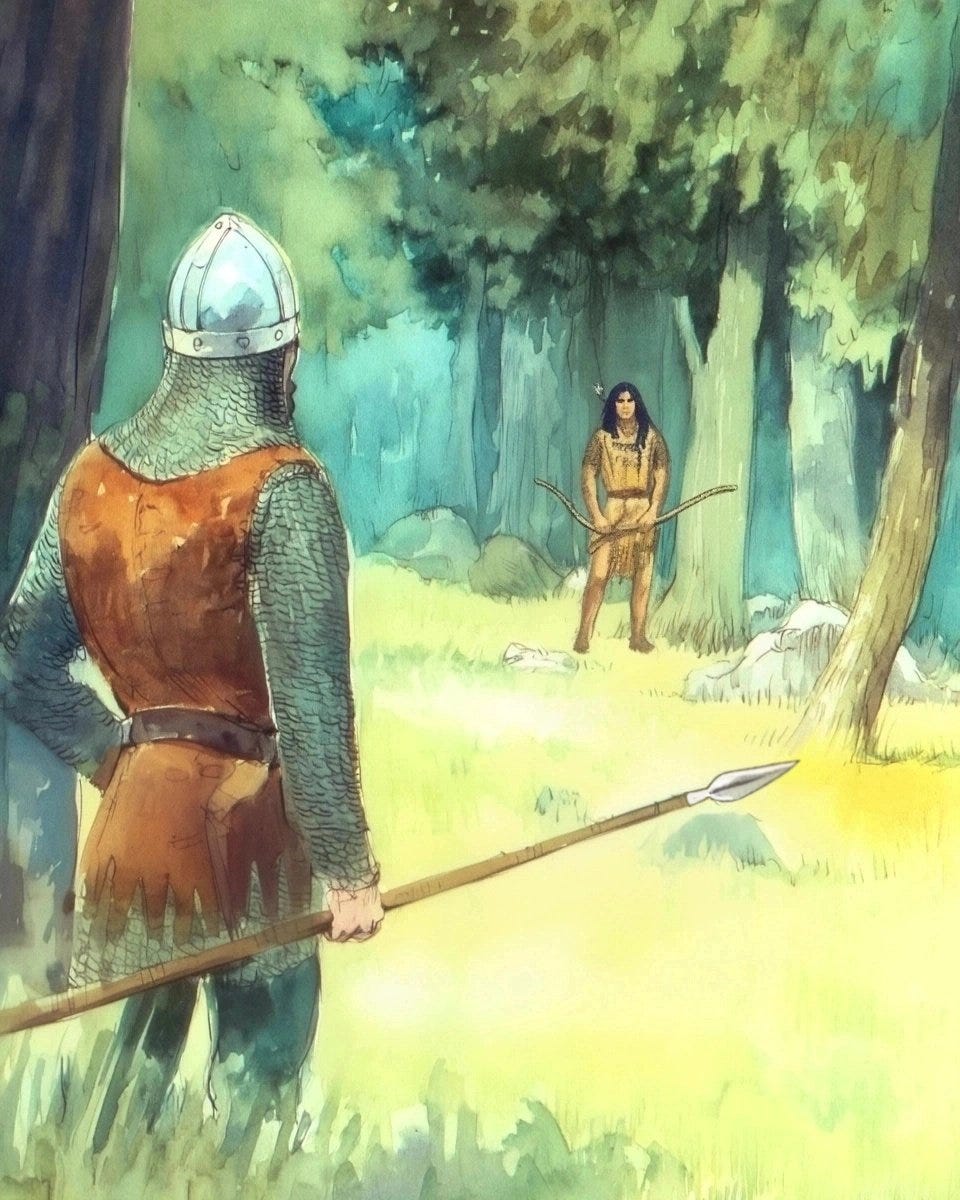Madoc ab Owain
Did a prince of Gwynedd sail to America?
An oft repeated legend claims that a son of Owain Gwynedd, named Madoc, led a voyage to lands across the sea, fleeing from internecine fighting back home. Owain ap Gruffudd, better known as Owain Gwynedd, or Owain Fawr (Owain the Great) is remembered as one of the greatest kings of Gwynedd, ruling from 1137-1170. Owain had a prodigious number of children, but most pedigrees and sources do not actually mention Madoc. Madoc is eventually added as an illegitimate younger son. Madoc’s murky origins unfortunately don’t get us off to a great start.
The first reference we have to Madoc comes from a poem the 15th century Poet Maredudd ap Rhys
Splendid Madog, of great countenance,
Proper scion of Owain Gwynedd,
He did not desire land, he was my inspiration,
Nor great wealth other than the seas.
This connects Madoc both to a tradition of seafaring and to Owain as a descendant. What it doesn’t do however, is connect Madoc to the Americas. The next reference we find to this Madoc comes from David Powel’s “Historie of Cambria”, a translation and expansion upon Humphrey Llwyds expansions of Caradoc of Llancarfan’s work. While Humprey mention’s Madoc in his work, and provides the initial notion of him sailing to an ‘unknown land’, Powel gives us much more detail and extrapolation Madoc. (passage amended for intelligibility.)
Madoc another of Owen Gwyneth’s sons left the land in contention betwixt his brethren, and prepared ships with men and munition, and sought [adventures] by seas, sailing West, and leaving the coast of Ireland so far north, that he came to a land unknown, where he saw many strange things. This land must needs be some part of that country of which the Spaniards affirm themselves to be the first finders since Hanno’s time; for by reason and order of Cosmographie, this land, to the which Madoc came, must needs be some part of Nova Hispania or Florida. Whereupon it is manifest, that that country was long before by Britons discovered.
He then mentions a return voyage, which Madoc spreads word of this paradise and sets sail again.
And after he had returned home and declared the pleasant and fruitful countries that he had seen without inhabitants ; and upon the contrary part, for what barren and wild ground his brethren and nephews did murder one another he prepared a number of ships, and got with him such men and women as were desirous to live in quietness , and taking leave of his friends took his journey thitherward again . Therefore it is to be presupposed , that he and his people inhabited part of those countries.
Powel’s work is the kernel of the Madoc legend. Powel defends his claims, and states that this is seen in the work of the poet Guten Owain, which is unfortunately for us, lost.
This Madoc arriving in that Western country, unto the which he came, in the year 1170. left most of his people there: and returning back for more of his own nation, acquaintance and friends, to inhabit that fair and large country: went thither again with ten sails, as I find noted by Gutyn Owen. I am of opinion that the land, whereunto he came, was some part of Mexico: the causes which make me to think so be these.
Powel then gives his own reasoning as to why they must have landed in Mexico.
The common report of the inhabitants of that country, which affirm, that their rulers descended from a strange nation, that came thither from a far country: which thing is confessed by Mutezuma king of that country, in his oration made for quieting of his people, at his submission to the king of Castile, Hernando Cortez being then present, which is laid down in the Spanish Chronicles of the conquest of the West Indies.
The British words and names of places, used in that country even to this day, do argue the same as when they talk together, they use this word Gwrando, which is, Hearken or listen. Also they have a certain bird with a white head, which they call Penguin, that is, white head. But the Island of Corroeso, the cape of Bryton, the river of Gwyndor, and the white rock of Pengwyn, which be all Brytish or Welsh words, do manifestly shew that it was that country which Madoc and his people inhabited.





